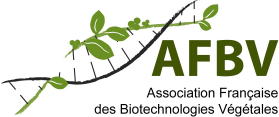AFBV1, WGG2, EU-SAGE3 and GfPB4, four European associations bringing together mainly scientists and experts in biotechnology, welcome the European Parliament’s vote of 7 February (307 to 263 with 41 abstentions) in favour of the draft regulation on plants derived from New Genomic Techniques (NGT) published by the Commission in July 2023. Combined with other techniques already in use, NGTs make it possible to speed up the process of plant breeding by more rapidly generating plants that are resistant to biotic stresses caused by pathogens and pests, tolerant to abiotic stresses caused by the environment (drought tolerance, for example), or higher-quality plants that meet the demands of farmers, consumers and manufacturers. The proposal ensures transparency regarding the use of plants and products from NGT. The use of NGT plants in organic farming remains explicitly excluded and seeds from NGT plants need to be labelled in consequence. This vote constitutes an important step towards a new regulation allowing the use of NGTs.
These four associations hope that the Agriculture and Fisheries Council will also find an agreement, permitting launch of the trilogue procedure and the opportunity to reach a consensus on a positive and workable final text. This version should clarify the points raised during the debates without calling into question the fundamental principles of the proposal, in particular the creation of two categories of plants: NGT-1 plants will be considered as being of conventional type if their compliance with certain criteria equivalence is confirmed by the competent authorities
If the trilogue does not reach an agreement before the end of the current parliamentary term, the marketing of NGT varieties will be postponed for several years in the EU, even though some NGT varieties have already been launched in several countries. To secure the future of its agriculture, the EU must make these NGTs accessible as soon as possible. By enabling these useful new tools, the EU will help reduce the risks associated with climate change and protect its food sovereignty and security.
Press Contacts:
1AFBV : Gil Kressmann – gil.kressmann@wanadoo.fr
2 WGG : Prof. Dr. Klaus-Dieter Jany – zentrale@wgg-ev.de
3 EU-SAGE : Oana Dima – oana.dima@psb.vib-ugent.be
4 GfPB : Prof. Dr. Gabi Krczal – gabi.krczal@agroscience.rlp.de
Download :
- Press release









